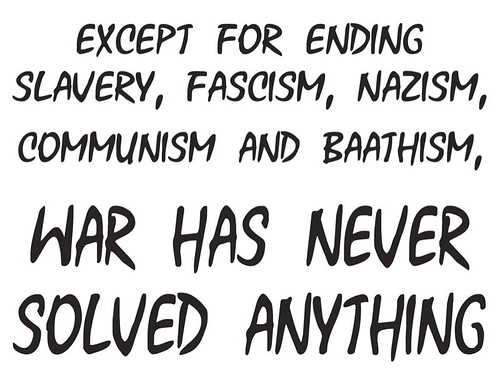I just saw a young man speeding off in his car and a young woman, futilely chasing after it, screaming, "It's all I have. I've got nothing!" Why are human beings so cruel to each other? Why do we think we have the right to ignore the clear pain of another person?
Of course, the young man felt like it was his right to leave with everything the homeless woman had. Perhaps she had done something to him. Whatever it was, is the theft of her bedding and belongings on this cold fall day worth the "crime" she had committed? Of course, the local police find it easy to tear up the homeless folks' bedding and tents, leaving them with nothing to sleep with. The local gangs attack other gangs because of an insult enacted a year ago. A nation kills innocent civilians because of the supposed crime of their leaders.
This is all based in the human brain. We all have mirror neurons, which cause us to identify with other people. But we also have a way to block mirror neurons, to make some kinds of people those we refuse identity with, so we can actually treat them as less than human. But if we refuse to identify with those of the opposite sex, those we consider "criminals", another group, another nation, then we can easily justify inhuman actions against them.
How, then, can we stop this? If this is a natural process, what must be done to see others, ALL others as human beings? How can it actually be morally possible to treat our neighbor as ourselves? Are we simply not built for it, even as we all recognize how necessary it is?
Is there a social response that would help us all treat each other fairly? Jails and prisons clearly don't work-- in fact, in some ways, they only increase the separation between humans allowing us such dehumanizing terms as "inmate" or "felon". Can we put social pressure on each other to be fair to all people? Can we train all children in school how to resolve conflict in peaceful ways that is fair to all sides? If so, would it do any good, considering that our human makeup demands unfairness at times?
Is there a medical solution? What about hormone therapy? Those with high testosterone rates often demand more respect and react more harshly than those who do not have such high rates. But is demanding such a procedure acting in fairness to their "normal" state? Can we demand unfairness to some for a more fair society? And, of course, unfairness is not simply a medical condition. We are all unfair at times, especially when excessively stressed. We are occasionally unfair to our children, to our employees, to our students; and conversely, we are occasionally unfair to our parents, employers and teachers, by applying to them unjust motives that may or may not be true.
Is the best we can do to make an ideal of fairness, of equality? To apply objectivity and lack of judgment as a universal standard, not just a standard of courts and journalism. And then, perhaps we can train and model the art of apologizing when we are wrong, because we all make mistakes. If we admit our unfairnesses, and do what we can to not repeat the wrongs, can we get closer to a society that sees fairness as a true, practical standard?



